- Home
- Our School
- Curriculum Information
- Curriculum Subject Information
- Personal, Social, Health, Emotional and Economic Education (PSHE)
Personal, Social, Health, Emotional and Economic Education (PSHE)
INTENT
The aim of Personal, Social and Health education (PSHE) and Citizenship at Galley Common Infant school, is to help pupils to group to be healthy, independent and responsible adults who contribute in a positive way to society.
Personal, Social and Health education and citizenship aims to enable the children to:
- know and understand what constitutes a healthy lifestyle;
- be aware of safety issues;
- understand what makes for good relationships with others;
- have respect for others;
- be independent and responsible members of the school community;
- develop self-confidence and self-esteem, and make informed choices regarding personal and social issues; develop good relationships with other members of the school and the wider community
|
YEAR |
PATHS |
Protective Behaviours |
JIGSAW |
No Outsiders Here |
|
R
|
To understand feelings, happy, sad, angry and excited and worried.
To begin to develop strategies to manage feelings (turtle)
Differentiate Comfortable and uncomfortable feelings.
|
Recognising when I feel safe. Private parts of the body. Early warning signs. Network hand – recognising people I can go to if I feel unsafe.
|
Similarities and differences between friends and families. Correct name of body parts and private parts of the body. All feelings are valid. Comfortable and uncomfortable touches – consent. |
To recognise what I like and to say what I think. How to make friends. To recognise and celebrate different families. |
|
1 |
To understand feelings, tired, frustrated, proud, love, worried, disappointed, jealous, furious, guilty and generous.
Basic problem solving.
Making choices. |
How do we behave when we have feelings. Early warning signs. Body privacy. Safe and unsafe secrets. Network hand |
To recognise people who are important to me. Development of babies. Body privacy and rights. Empathy. Personal boundaries. |
To like the way I am. To play with boys and girls. To recognise that people are different ages. To understand that our bodies work in different ways. To recognise we share the world with lots of people. |
|
2 |
Self-control and Anger management.
Calm and relaxation practise.
Problem solving.
|
What our rights are. Early warning signs. Personal space. Network hand |
Similarities and differences between boys and girls. Early warning signs. How to manage anger. People I trust. |
To understand what diversity is. To understand how we can share the world. To understand what makes someone feel proud. To feel proud of being different. To be able to work with everyone in my class. |
The Colour Monster
Throughout all year groups 'The Colour Monster' story is used to support children to better understand emotions and the feelings that accompany them. Through exploring the story children are supported to express themselves when a certain feeling arises and they also learn to associate colours with feelings.
Feeling Jars
All classrooms have colour monster jars, and children have the opportunity throughout the day to place their lollipop stick in the monster corresponding to their feeling. Teachers will then check in with pupils to support their management of the feeling.
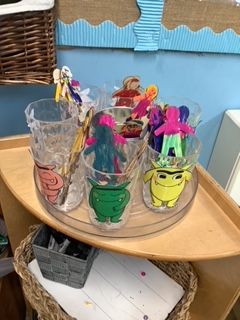
PATHS
The PATHS programme supports the development of self-control, emotional awareness and interpersonal problem-solving skills.
Promoting Alternative THinking Strategies.
At Galley Common Infant School l all classes from Reception to Year 2 follow the PATHS curriculum.
There are five areas which underpin The PATHS® Programme for Schools curriculum including:
- Self-awareness
- Relationship skills
- Self-management
- Responsible decision-making
- Social awareness
The programme teaches children how to label their feelings and apply self-control strategies, leading to improvements in classroom behaviour, resilience and verbal fluency.
The lessons are multi sensory, including songs, stories and role play. They are usually based around 4 puppets who visit the children and talk about their feelings or scenarios.

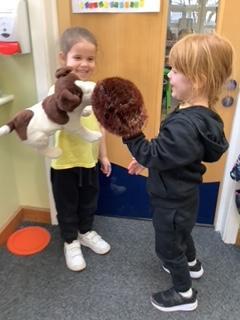 |
 |
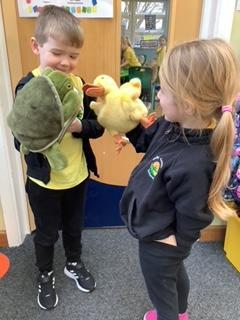 |
 |
Pupil of the day
PATHS is a big part of Galley Common, everyday a child is picked from each class to be the Pupil Of The Day, where they will carry out special jobs and get to receive compliments from their friends and teachers at the end of the day.
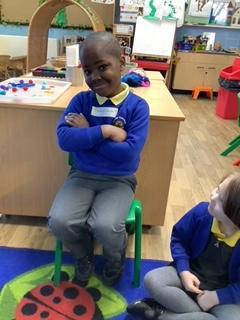
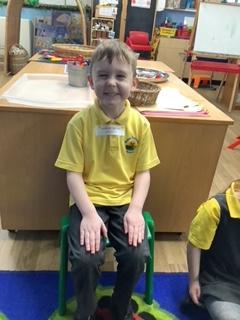
Jigsaw
Jigsaw is a mindful and child-centred approach to PSHE.
The scheme of learning integrates personal, social, health and economic education with emphasis on emotional literacy, mental health and SMSC, especially spiritual development.
Jigsaw aims to help children know and value who they really are and how they relate to other people in this ever-changing world

- jigsaw-information-leaflet-for-parents-and-carers-2020-1.pdf
- jigsaw uk-3-11-snapshot-overview-map.pdf
Relationships & Sex Education (RSE)
An important part of the Jigsaw PSHE programme is delivered through the 'Relationships' and 'Changing Me' puzzle pieces, which are covered in the summer term.
There are four main aims of teaching RSE:
- To enable children to understand and respect their bodies
- To help children develop positive and healthy relationships appropriate to their age and development
- To support children to have positive self-esteem and body image
- To empower them to be safe and safeguarded
Below is a summary of RSE coverage within the Jigsaw scheme for each year group:
• EYFS - Growing up: how we have changed since we were babies
• Year 1 - Boys’ and girls’ bodies; naming body parts
• Year 2 - Boys’ and girls’ bodies; body parts and respecting privacy (which parts of the body are private and why this is)
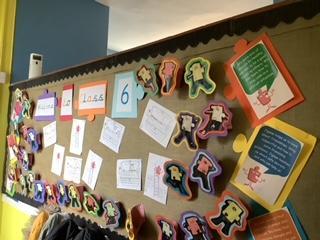
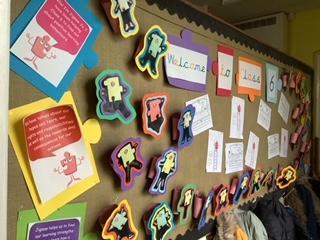
No Outsiders
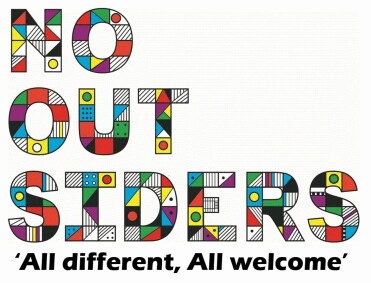
At Galley Common Infant School, we believe in the importance of equality and everybody having the same opportunities. This is modelled by our staff and taught through lessons and other experiences both discretely and explicitly.
We follow a scheme called No Outsiders. No Outsiders has three core values:
- Respect for diversity through education in schools;
- Commitment to community cohesion through understanding and acceptance of difference;
- Promotion of dialogue to counter fear and hate in society.
No Outsiders involves the use of age appropriate story books (see below for a list of the books we use) to teach about seven of the protected characteristics of the Equality Act 2010. These include:
- age;
- disability;
- gender reassignment;
- race;
- religion or belief;
- gender;
- sexual orientation.
It is important we create a school culture in which children, staff and the whole school community work together to foster an environment of inclusivity through effective spiritual, moral, social and cultural (SMSC) and character education.
We believe that it is vital that our pupils can discuss inappropriate and discriminative language and understand how to address boundaries in order to prepare them for a future in modern Britain.
We strive to ensure that our pupils are surrounded by a consistent message:
-
There are no outsiders here;
-
Everyone is different;
-
We like being different;
-
We are all equal in our difference;
-
I can get along with you even if we are different;
-
We live in the U.K., our British values support this and the law says this too.
We will work alongside our families, parents and carers to deliver this message of inclusivity. You are very welcome to call in to see your child’s class teacher to discuss this approach and to view the picture books we use for this. Mr Pearson will also share a meeting in the Summer term every year to explain this programme and other approached to PSHE.
At Galley Common Infant School, there are no outsiders - Everyone is welcome!
For your information, we have attached a list of the picture books that we shall be using to teach No Outsiders:
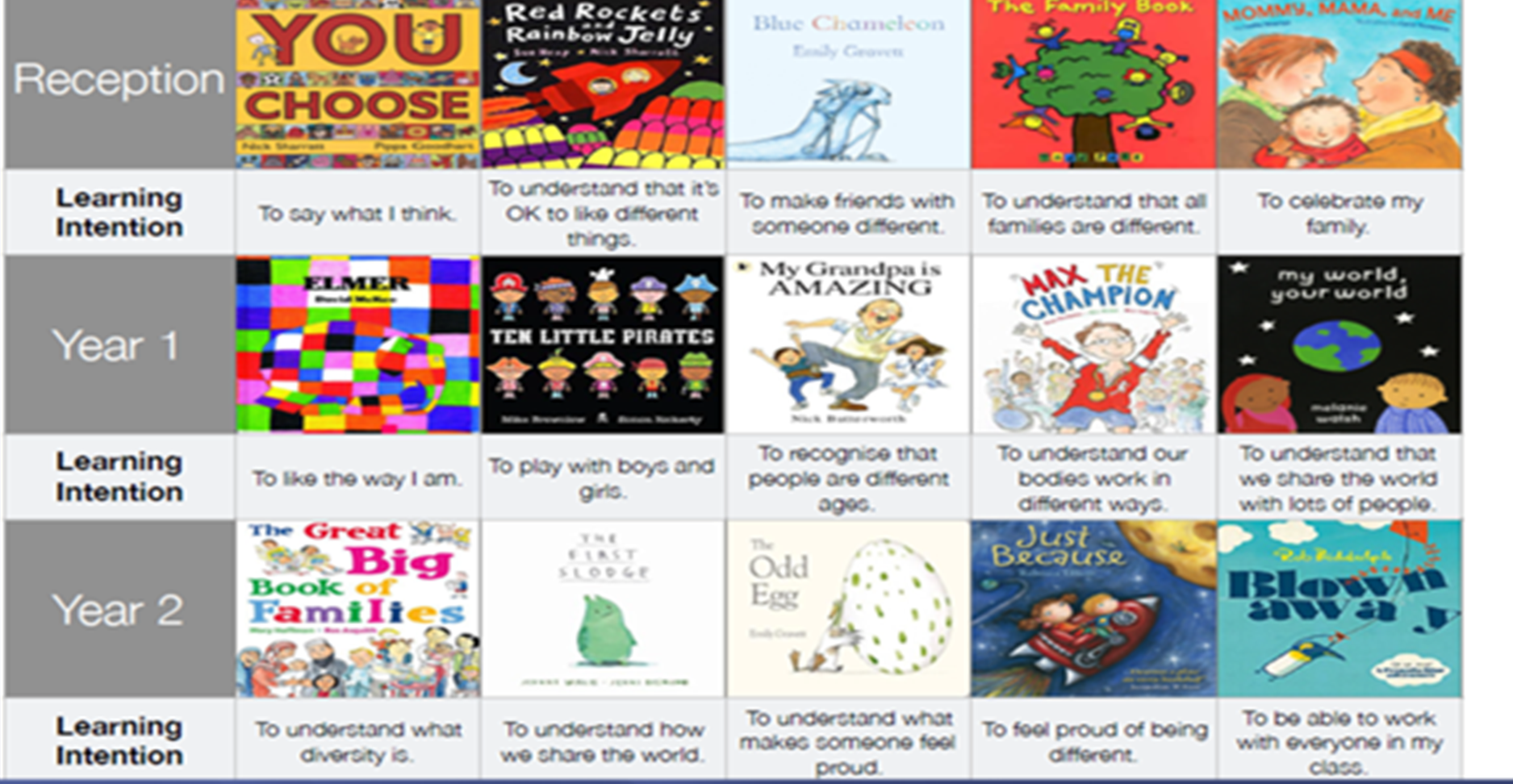
Protective Behaviours
Protective Behaviours is a framework for personal safety consisting of 2 Themes and 7 Strategies. This is very different from the ‘lock your doors’, restrictive approach to personal safety - it is a dynamic, confidence building, empowering approach that links safety with having adventures and taking risks.
It starts with a positive statement about feeling safe: the first theme of PBs is:
We all have the right to feel safe all of the time.
With that right comes a responsibility not to do anything that would leave other people feeling unsafe and we can identify if we are feeling unsafe by tuning into our early warning signs, those things that happen in our body like butterflies in the stomach, wobbly knees etc. that let us know we don’t feel okay in this particular situation. And if we get those ‘Early Warning Signs’, Protective Behaviours encourages us to think clearly about what our options are and work out what action we might need to take. That action might be to contact somebody on a support network.
We can talk with someone about anything, even if it feels awful or small
Protective Behaviours encourages the development of a clear ‘support network’ which we can call upon having identified that we are feeling unsafe. On the support network we would ideally have 5 people who might be able to help us do some problem-solving. They might be people who ask questions so that we can come up with our own solutions; they might be people who actually give some advice; they could be friends or family or people at the end of a help line - sometimes it’s easier to ‘phone a help line as they, and us, remain anonymous. It doesn’t necessarily have to be about something that’s really terrible; it might be that we need to mull things over, or celebrate an achievement. Having four people plus the ones at home, is suggested so that we have got a bit of variety and have back up options if our first choice of contact is unavailable.
In this way the Protective Behaviours process can increase self-confidence and empower us to develop our own thinking and problem-solving skills. In turn, this can enhance our confidence to take protective action on our own behalf and seek the help of others when we need it in order to help us feel safe again. When we are feeling safe we are more likely to feel confident, strong and empowered so we can get ‘out there’, have some adventures and live life to the full within a framework of safety.
Further Information about Protective Behaviours:
https://www.protectivebehaviourstraining.co.uk/publications/lets-talk-magazine
